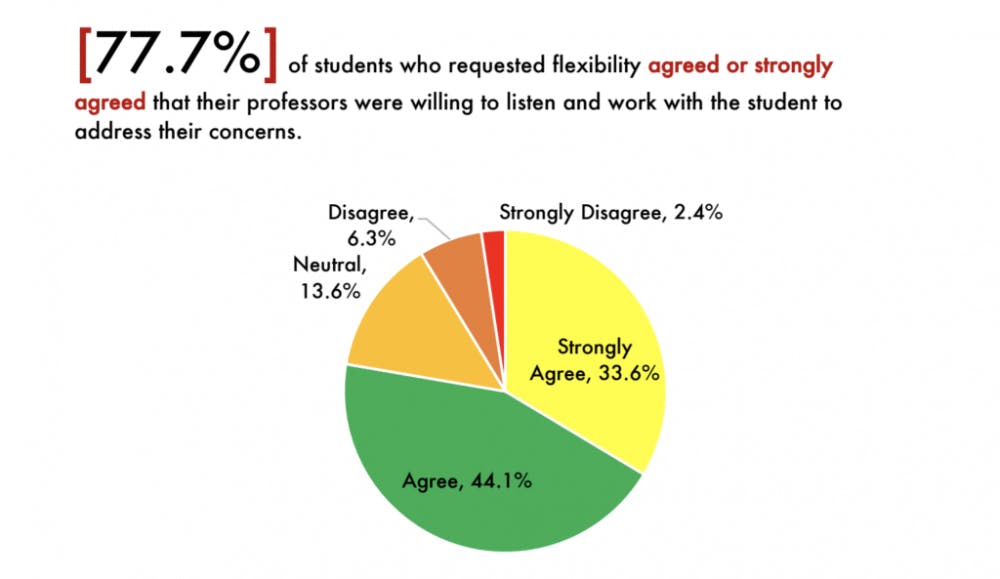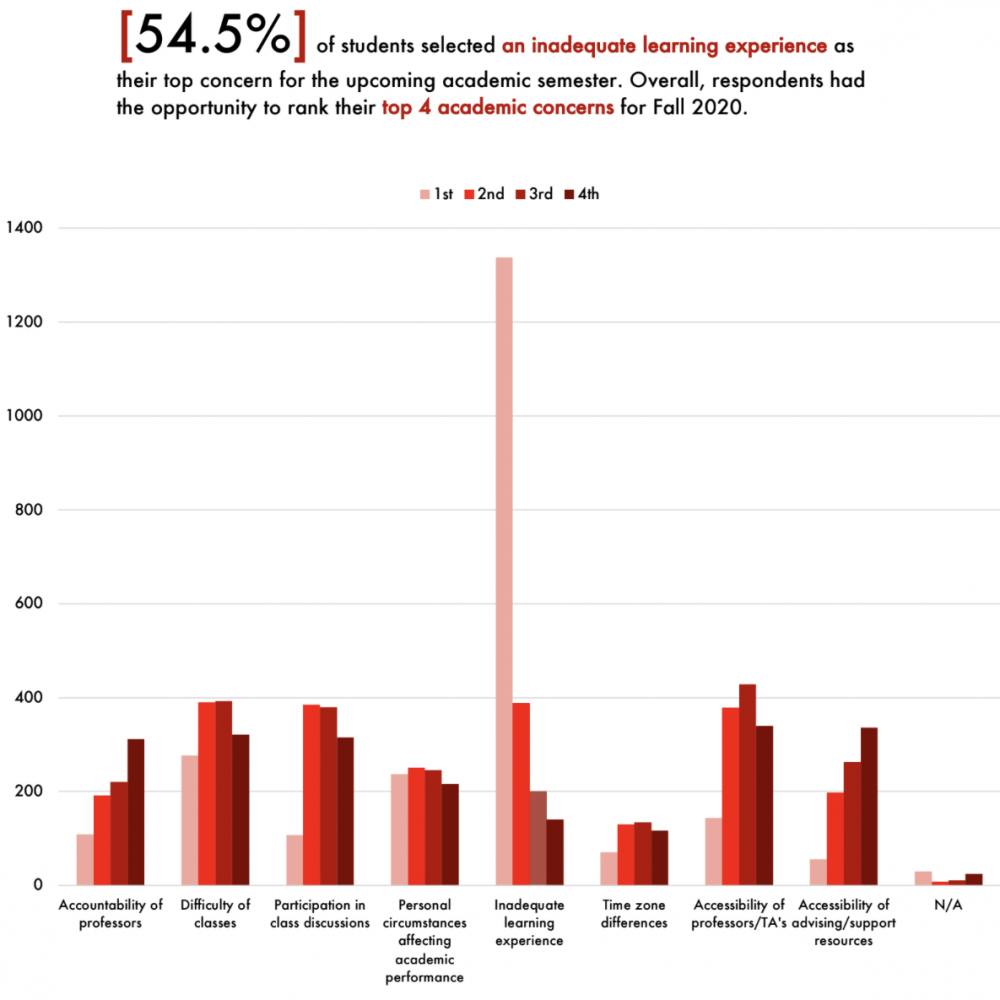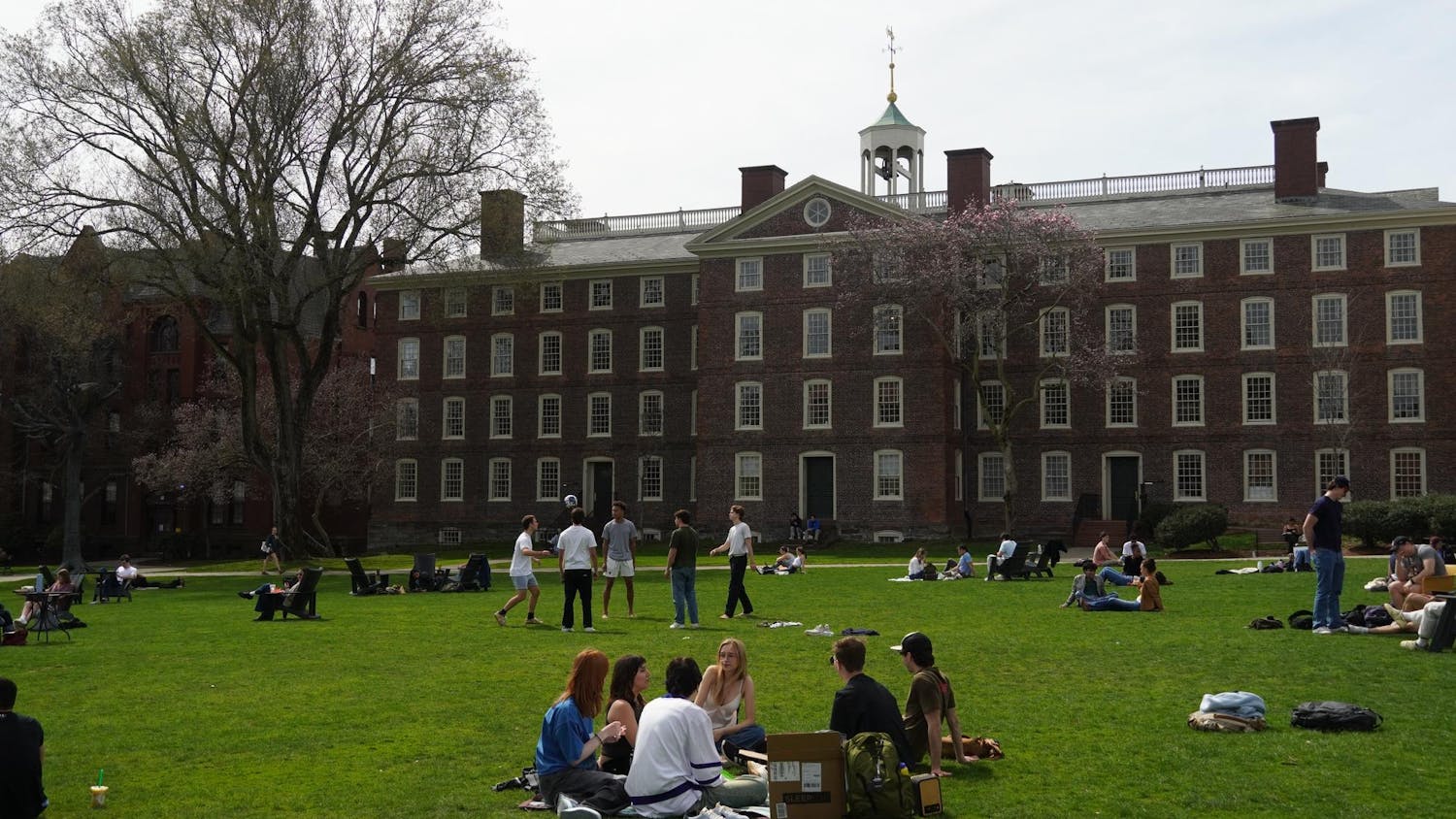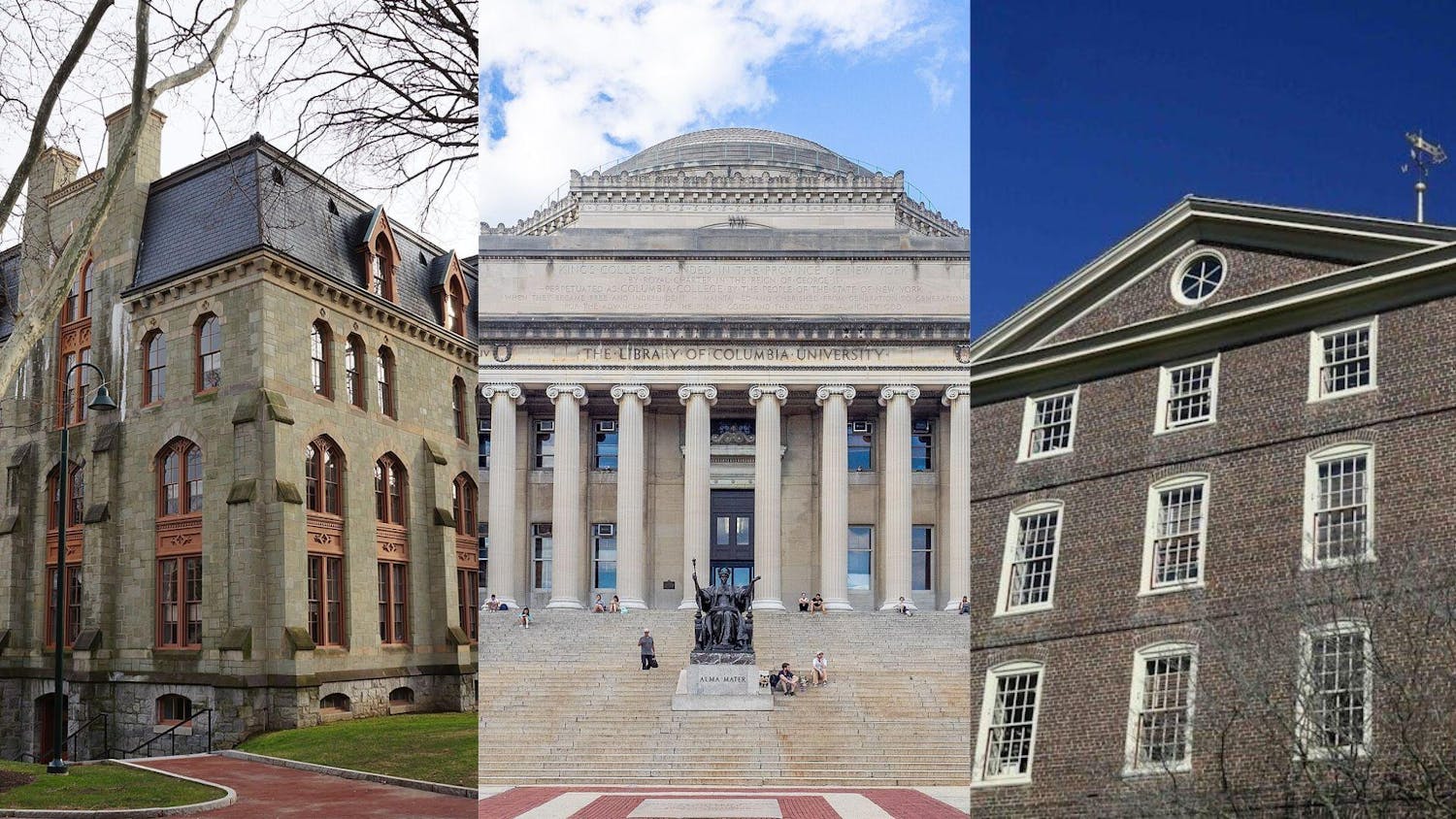The Undergraduate Council of Students’ pre-reopening decision poll revealed the majority of students surveyed are concerned about aspects of campus life as they prepare to return to College Hill in the fall.
Of students surveyed, 65.3 percent listed access to University facilities and public spaces as among their top concerns regarding the return to campus. In the survey, 61.7 percent of respondents expressed concern about the shape of extracurricular activities and social events, while 59.3 percent noted worries about student compliance with public health regulations.
The poll also detailed students’ general concerns about academics, campus life and housing, which UCS will use to advocate for student needs as the University approaches a modified fall semester on College Hill.
Between June 28 and July 5, 36 percent of the student body — totaling 2,453 undergraduate student respondents — participated in the online survey, according to a Tuesday UCS email. Incoming first-year students only answered questions about the upcoming academic year, as they will not be returning to campus in the fall per the University's three-term plan.
The poll was meant to “capture students’ questions and concerns, as well as (shape) our policy and advocacy going forward,” said UCS Vice President Summer Dai ’22. Having statistics to back up student voices has been helpful in the past in discussions with administrators, Dai added.
UCS decided to poll the student body in order to gather data on student sentiments that had previously been expressed online, said Chair of Academic Affairs Deepak Gupta ’22. “If we wanted to get something serious done, we couldn’t just rely on a few (Dear Blueno Facebook) posts and emails,” he said.
The University announced July 7 that the 2020-21 school year would take place in a tri-semester hybrid format in which students may enroll in two out of three terms, The Herald previously reported. All courses with more than 20 students will take place virtually, and students living on campus will be placed in singles to support social distancing.
The poll focused on five main topics outlined by UCS leadership: off-campus and remote living, life on campus, academic experiences, future academic concerns and transparency.
The poll’s areas of focus were determined by UCS discussions, conversations with both student groups and individuals and dialogue with administrators, according to Chair of Campus Life Zane Ruzicka ’23.
Dai explained that UCS “focused on campus life and academic concerns because we felt that these were the two main areas that students were most concerned about.”
Survey results
Poll respondents identified mental health, wellness and community-building resources as areas of concern and uncertainty for the upcoming semester. Students noted that Counseling and Psychological Services and other wellness services, in addition to support networks for incoming first-year students, would be less accessible due to the partially remote nature of teaching.
Students also expressed concern about living circumstances, wondering “how the University might restrict off-campus social gatherings, and what forces they might use in order to enforce any regulations,” according to the UCS report.

“When implementing health guidelines, if students don’t feel that they played a part in the formation of them, they’re not going to buy into the plan or health regulations, and that is a really scary proposition to me,” Ruzicka said. He said he believes that “the University will put itself in a position to not have a safe community” if administrators discount student voices when drafting and enforcing public health policies for the upcoming school year.
In an email to The Herald, University Spokesperson Brian Clark wrote that during the decision-making process for the 2020-2021 academic year, “the health and well-being of our students and the broader community has been our highest priority, while finding the best ways possible to continue to provide Brown's world-class educational experience.” Student input was gathered through multiple surveys and was one of the most important factors considered, Clark added.
On the University’s administrative performance, 38 percent of students answered that they believe administrators have not incorporated an adequate number of student voices while forming policies around the pandemic, while 42.2 percent of those polled indicated that they were unsure.
When asked about their academic experiences following the move to virtual learning in March, 77.7 percent of students who requested academic flexibility from their professors “agreed” or “strongly agreed” that their professors were willing to accommodate their requests. Still, many said that they would have liked to see other policies, such as Universal Pass, implemented, or the grading option change deadline extended to after the final exam period.

Gupta said that he was “happy to see that a lot of professors were willing to listen to students and work with them about their concerns” during the past semester. A majority of respondents voiced that they would like to see similar flexibility from professors and administrators during the fall semester in light of the continuously changing nature of the pandemic.
In addition, “54.5 percent of students selected an inadequate learning experience as their top concern for the upcoming academic semester,” according to the report. Many students highlighted the lack of connection between their professors and classmates as detrimental to their learning and mental health. “Altogether, the passivity of remote learning led to decreased levels of engagement and motivation as many lamented the inevitable loss of enriching experiences,” the report concluded.
Gupta noted that he was surprised by students’ strong disapproval of online lab courses in particular. He said that he is working with Dean of the College Rashid Zia ’01 to incorporate student feedback into virtual lab courses in the future.
Nearly half of respondents — 48.2 percent — also said that they were contemplating taking a leave of absence at some point during the upcoming academic year, with most emphasizing staying connected with the campus community and finding an internship or employment opportunity as concerns related to the leave-taking process.
“Overall, I thought this project was a really big success,” Gupta said, noting that the response rate for the poll was only 3 percent less than that of the 2019 Fall Poll, despite comparatively fewer initiatives taken to directly boost the number of student respondents.
“One of my biggest takeaways (from the poll) is that UCS needs to be incredibly proactive in communicating with both the student body and administration,” Dai said. “It’s going to be a very different semester, and we’re all going to have a lot of questions and face a lot of uncertainty, so doing everything we can to support students in these turbulent times, as well as building community when people are physically apart, are priorities.”





